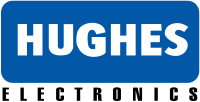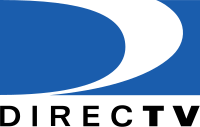DirecTV
FIND YOUR PERFECT ENTERTAINMENT MIX
NFL SUNDAY TICKET
EVERY LIVE GAME. EVERY SUNDAY AFTERNOON.
Experience the 2022 season of NFL SUNDAY TICKET—only on DIRECTV. Get it included at no extra cost with CHOICE™ Package or above.
About Directv
(from their website and Wikipedia)
In 1953, Howard Hughes created the Howard Hughes Medical Institute (HHMI), to which he transferred full ownership of Hughes Aircraft. Ostensibly created as a non-profit medical research foundation, HHMI was accused of being used by Hughes as a tax shelter. Following Hughes’ death in 1976, HHMI was incorporated in 1977, and litigation ensued to determine whether it would be allowed to maintain its interest in Hughes Aircraft.In 1984, the court appointed a new board for HHMI, which proceeded to sell off Hughes Aircraft to General Motors on December 20, 1985, for an estimated $5.1 billion.General Motors then merged Hughes Aircraft with its subsidiary Delco Electronics to create Hughes Electronics Corporation. The new subsidiary was initially composed of four units: Delco Electronics Company, Hughes Aircraft Company, Hughes Space and Communications Company, and Hughes Network Systems.
Stanley E. Hubbard founded United States Satellite Broadcasting (USSB) in 1981 and was a leading proponent for the development of direct-broadcast satellite service in the United States. USSB was awarded five frequencies by the FCC, at the coveted 101-degree west satellite location. Hughes Communications, Inc. was also awarded 27 frequencies at the same 101-degree location. After many years, the technology was developed to enable the building of very high-power satellites, and digital compression (MPEG-2) standards were developed that allowed multiple digital television channels to be sent through each satellite frequency.
Hughes and other companies believed in the early 1990s that technology would soon make digital satellite television affordable. Hughes attempted to create a joint venture with NBC, News Corp., and Cablevision in 1990, to launch the first high-power digital television service called Sky Cable. Failing to do so, the company instead created DirecTV as a separate division and secured an agreement with USSB to build and launch the first high-power direct-broadcast satellite system. DirecTV’s name is a portmanteau of “direct” and “TV” (as in direct broadcast satellite television). Hughes/DirecTV then turned to Thomson Consumer Electronics (under the RCA, GE, and ProScan brands) to develop the digital satellite system for the service that would be capable of receiving 175 channels on a small 18-inch dish. These dishes utilized a new generation of smaller, lighter receiver dishes based on military technology introduced by the Global Broadcast System, which predated DirecTV’s viability by almost ten years. Hughes was awarded the contract to build and launch the new high-powered satellites, and USSB and DirecTV agreed that the new satellites would carry the two separate programming services: USSB and DirecTV.
The USSB and DirecTV programming services were launched on June 17, 1994. Digital Equipment Corporation provided the hardware for DirecTV, Matrixx Marketing (part of Cincinnati Bell) provided customer care via the Matrixx Plus department, and DBS Systems created the billing software. In December 1998, DirecTV acquired USSB for $1.3 billion, and combined the two satellite services. In 1999, DirecTV acquired PrimeStar, a competitor in the satellite television industry, for $1.83 billion, dramatically increasing its share of the satellite television market in the US.
In September 1996, Hughes purchased 70% of PanAmSat for $3 billion. In 1997, GM spun off Delco Electronics from Hughes and transferred it to Delphi Automotive Systems. That same year, Hughes Aircraft was sold to Raytheon for $9.5 billion. Raytheon filed a lawsuit in 1999 accusing Hughes of overstating the value of Hughes Aircraft by $1 billion. A $635.5-million settlement was reached in 2001. In 2000, Hughes Space and Communications was sold to Boeing for $3.75 billion, which it later claimed had also been overvalued by Hughes. Hughes later settled with Boeing for $360 million. These sales left DirecTV, PanAmSat and Hughes Network Systems as the remaining components of Hughes Electronics. On November 11, 1997, DirecTV is signing a two-year deal with Action Adventure Network, a consortium founded by Telescene, Richmel Productions and Goodman/Rosen Productions to offer original series and telefilms for pay-per-view viewing, for $2.99 with the intent to expand.
Direct satellite broadcasters were mandated in 1992 to set aside 4% of its channel space for noncommercial educational and informational programming. DirecTV selected C-SPAN, EWTN and the Trinity Broadcasting Network from its current channel lineup plus request additional proposals from other programmers. DirecTV had given PBS Kids, PBS’s original application, carriage that did not count against the set aside six weeks before the deadline. DirecTV selected an additional six channels; Clara+Vision, Inspirational Life, NASA TV, PBS YOU, StarNet and WorldLink TV, for the mandate.
In 2000, DirecTV introduced the first live in-flight television service for airlines; the system was first used by JetBlue and defunct startup carrier Legend Airlines.
In September 2000, GM executives, under pressure from GM’s shareholders as a result of its poor performance and the substantially greater market worth of Hughes, authorized Hughes executives to begin seeking buyers. In 2001, News Corporation began negotiations to acquire Hughes Electronics in a deal worth $8 billion, which would allow News Corp. to expand its Sky Global Networks satellite television operations into the United States. Negotiations with News Corp. ultimately failed, and Hughes entered into an agreement on October 28, 2001, to be purchased for $26 billion by EchoStar, owner of Dish Network. However, the deal attracted significant opposition from the Department of Justice and the Federal Communications Commission for antitrust concerns, leading the two companies to withdraw the agreement in December 2002. As part of the merger agreement, EchoStar was required to pay Hughes $600 million for the failure of the merger.
On April 9, 2003, News Corporation, the then-parent company of 20th Century Fox and Fox Television Studios agreed to purchase a 34% controlling interest in Hughes, including GM’s entire share of the company, for $6.6 billion, subject to SEC approval. As part of the financing for the deal, Liberty Media, the then-parent company of Starz agreed to take a $500-million option of stock in News Corporation that would be exercised upon the closing of the deal. Liberty, the second-largest shareholder in News Corp. after the Murdoch family with 18%, had originally planned to bid for DirecTV, but opted not to upon the agreement. The FCC voted 3–2 along party lines on December 19, 2003, to approve the deal subject to conditions, forcing News Corp. to agree to arbitration for all disputes with carriers of its media broadcasters, and to provide content through DirecTV neutrally rather than favoring its own networks.


